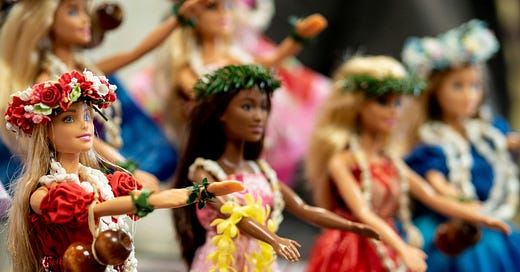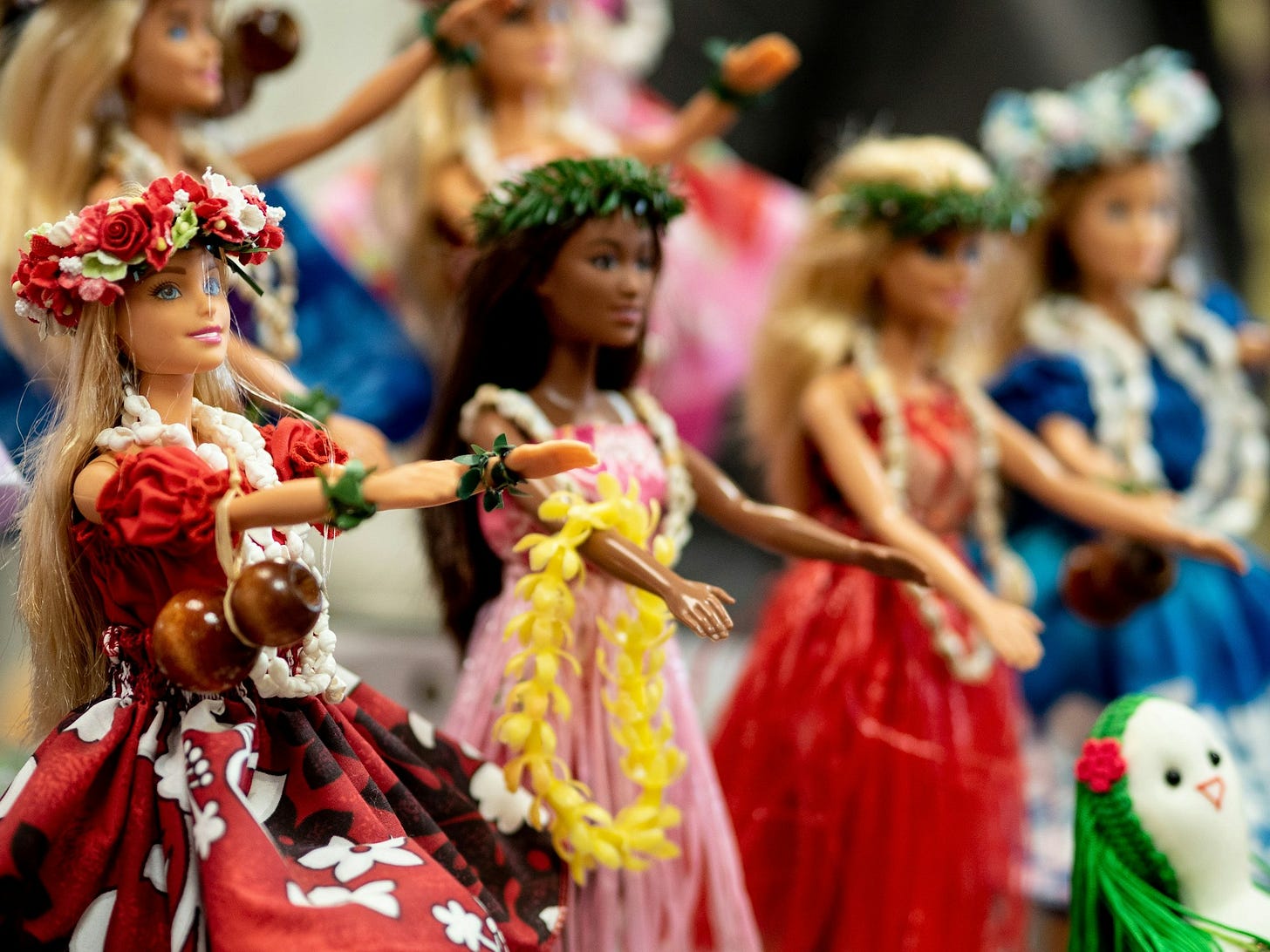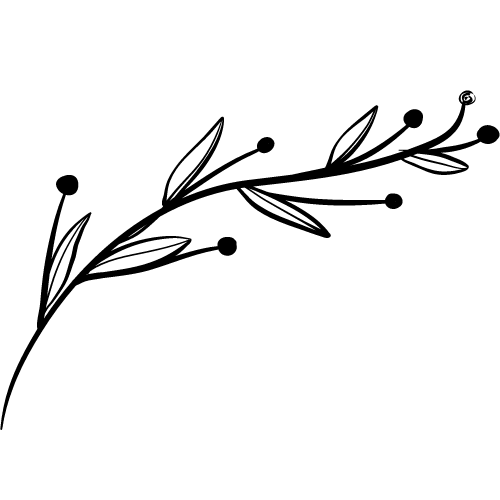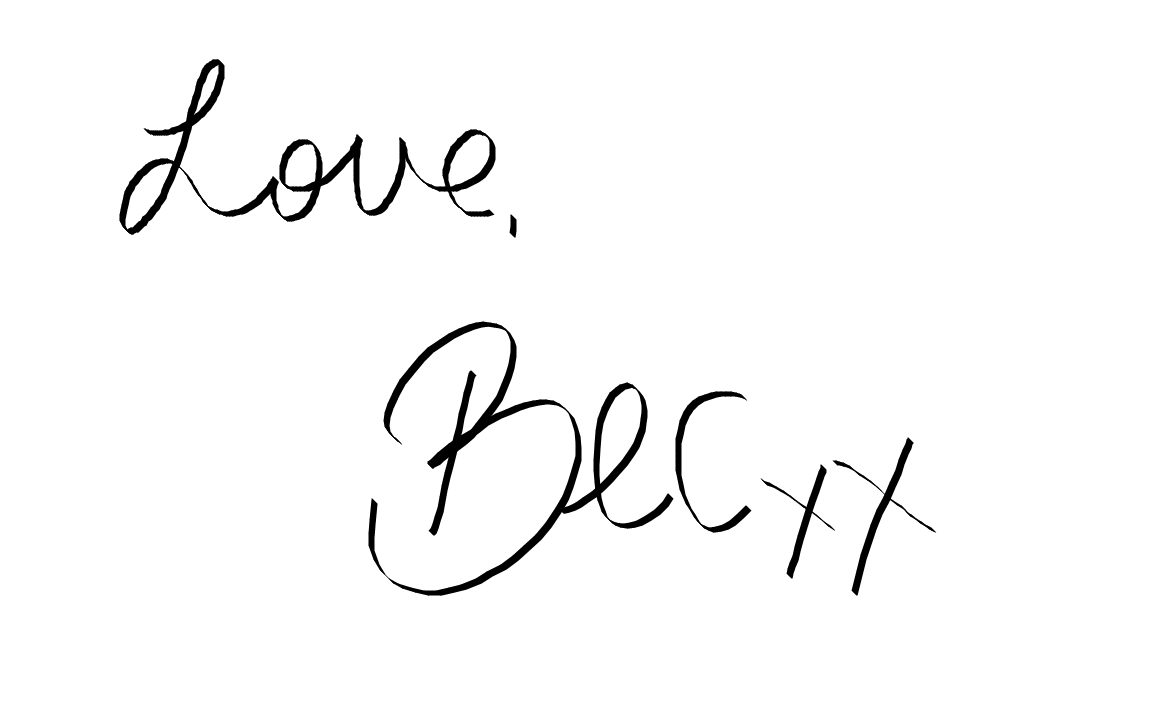Hey friends,
Thomas arrived on Friday 5 July, weighing 4.2kg (9 pounds, 5 ounces). While I am snuggling up with Thomas, I’ve arranged a treat for you, a winter series of five guest essays from some of my favourite writers about friendship in motherhood, and one delightful profile of Sheryn Binks, a local Christian musician. I’ll be back in your inbox in October.
The first essay is from Lorren Lemmons, who is a military spouse, a paediatric nurse, and a lover of words. We both write for and while I adore her poetry, her essays are equally stunning. Lorren writes the newsletter, I hope you’ll check it out.
I sat at the edge of the group, wondering how I could be surrounded by so many other women while feeling so isolated. We were all dressed up in Barbie costumes at a pre-movie party, making friendship bracelets, eating pink snacks, and posing in a life-size Barbie box. I’d spent hours that day baking and frosting a classic nineties Barbie cake, the doll’s torso rising from a four-layer confection of iced ruffles, but I couldn’t bring myself to slice into it first, and the rest of my friends laughing together in a conversation I’d somehow missed the on-ramp for.
I was grateful to be invited—I really was. I’d moved back to my hometown the year before, and finding a group of friends had proven to be difficult. Perhaps over-confidently, I’d assumed I wouldn’t have any trouble getting to know people. My husband’s military career and education had taken us to five different states, and I’d learned to overcome my shyness in order to make friends fast. Because many of the people in the communities I lived in were also far from family and staying there for only a limited time, they matched my desperation levels. Connections happened early and intimacy developed quickly because we needed each other.
However, here in the place where I’d spent most of my early life, the process was slow. We arrived on our first Sunday at church to find the pews swollen with other families, but they were all too preoccupied with their children to say hello. I took my kids to the library and tried to chat up the other mother sitting in the play area, but she looked at me with obvious discomfort and discreetly scooted away. Our neighbors one street over planned raucous block parties, but their friend group seemed to be closed. I watched their kids ride bikes around the neighborhood in a pack while my kids took up residence on the couch with the Nintendo switch all summer.
I wondered if there was something wrong with me. So many of the moms I saw in my town were beautiful and well-put-together, with thick eyelash extensions, gym-toned bodies, and Stanley cups in every color of the rainbow to match their designer athleisure outfits. I had pink hair, a thick waist, and a book habit. Maybe I just don’t fit in here, I thought.
Photo by Sean Bernstein on Unsplash
We’d moved from one end of the country to the other and left behind our very best friends. I’d met Stephanie just as lockdown restrictions had been lifted in our town—she’d just moved in and needed to borrow my washing machine to wash some milk-soiled towels before hers was delivered a few days later. She sat on my couch and we talked so quickly we could hardly breathe. When my husband came home from his clinic on base a few hours later, he said, “I take it you like our neighbors?” Stephanie and I just laughed. She had a kid to match each of mine, and soon the six of them were inseparable. We bounced between our two houses, going down hers on the cul-de-sac when they wanted to ride bikes, sitting in my family room when it was too hot and humid to be outside, sharing meals when our husbands’ busy schedules left us wondering if it was worth cooking for kids who would take only two bites or if we should make macaroni and cheese again.
When we moved, I told myself I knew nobody could replace Stephanie and that I wouldn’t expect to reach that level of compatibility and intimacy right away—but I couldn’t help resenting how nobody else compared. Nobody else understood me intuitively before I said a word. Nobody else had a life that fit with mine like a puzzle piece. Nobody else loved me unconditionally or thought I was hilarious and delightful just for being myself.
In her book The Life Council, writer and podcaster Laura Tremaine lays out ten different types of friends that women need in their lives. During the time when Stephanie was my neighbor, she’d become the only friend I needed—I had other friends I enjoyed, but she was the one who checked every box. We did daily life together, talked about deep subjects like politics and faith, and consoled each other through arguments with our spouses and scary situations with our kids. Now, sitting lonely in a crowd at the pre-Barbie movie party, a veritable celebration of womanhood, I wondered if I could find a friend that could check even one of those boxes. I wondered if there was anyone out there who actually even liked me or if I’d been invited out of pity.
Still, I continued to show up when group texts came in that year, inviting me to park playdates and Bachelor nights. I became more familiar with the women in my social circle, even though I sometimes felt frustrated at the surface-level quality of the interactions I was having. I learned to appreciate my friendships as escapism from the drudgery of daily life rather than essential, braided-in strands—I didn’t see or talk to them every day, but at least they provided a break from the endless cycle of making chicken nuggets in the air-fryer and then sweeping the crumbs off the floor. I wasn’t entirely satisfied, but I was grateful.
In the thick of another summer that I was privately and dramatically calling one of the hardest of my life, I slipped out of my house and drove to my friend’s house ten minutes away. A group of us praised her new couch and snacked on cookies from the local bakery as we giggled and groaned at a reality show for two hours. When the show finished, some of the group melted away, citing early alarms the next day, but a few of us clustered closer together. Somehow the conversation turned from the caricatures on the show to a struggle that was playing out in each of our homes—the details were different, but all of us were experiencing variations on the same theme. We spoke for another two hours, sharing our pain points and small victories before the call of tomorrow’s responsibilities lured us back into our cars.
I’d driven to that girls’ night thinking nobody could understand the situation that had slipped a grayscale filter over my life. I’d been looking for escapism, confident it was the best I could hope for, but instead, I’d found understanding—the look of recognition and nods of “me too” that made me realize I wasn’t alone.
Maybe I’d written off my circle of upbeat acquaintances too quickly. I’d assumed because we didn’t tumble headlong into best friendship that I would always need to hold them at arms’ length. Nobody could replace the best friend I’d left behind, but I wasn’t doomed to feel isolated, either. The time and patience I’d grudgingly given these relationships was finally turning into the intimacy and vulnerability I’d been missing. These friendships were slowly blooming all along.
I’ll be back in your inbox next fortnight with a profile of Sheryn Binks. Let us know in the comments about your own seasons of slow-blooming friendships 💛












What a great series idea, Bec! I loved this piece. Thank you, Lorren, for your honesty.
This was a wonderful read . I just started writing about female friendships last week as my 5yr old has started navigating her own at school it brings back memories of how it all starts. Thanks for this series. I look forward to reading the next one . Enjoy those baby snuggles